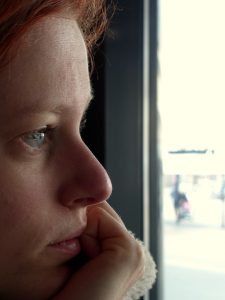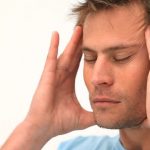What Helps with Pill Withdrawal?
It’s really easy to fall into a pill addiction. Most people start out taking them because a doctor has prescribed them, and it spirals from there. If you continue using them in strict adherence to your doctor’s instructions, that is considered medical use.
However, many people find themselves engaging in nonmedical use. They begin taking larger doses than prescribed or taking the medication more frequently than they should be.
Some people begin mixing the pills with alcohol or other medications/drugs. Before long, they are being used to get high, and the medical necessity is secondary.
It doesn’t take long to admit that you need to stop your pattern of nonmedical use, but it can take much, much longer to get the help that you need. A lot of factors play into postponing treatment, but a big one is fear of withdrawals.
If you are taking opiates, you face a lot of pain and discomfort from bone and muscle aches, gastrointestinal distress, and other issues.
If you are using benzodiazepines and sedative hypnotics, you may have to deal with seizures. There isn’t a type of pill withdrawal that is comfortable or safe.
To have the best chance at completing a detoxification and weathering the withdrawal symptoms, you need to enter formal drug treatment. Users who try a home detox invariably return to using to stave off the agony of withdrawal. In a professional rehab facility, clinicians work with you to alleviate discomfort and keep you healthy.
To learn more about qualified, structured drug addiction treatment and the role it plays in withdrawal, call 888-602-1971(Who Answers?).
Opiate Pill Withdrawal Symptoms
People in detox from prescription opiates can expect the following withdrawal symptoms and signs, according to the Substance Abuse and Mental Health Services Administration:

Anxiety and insomnia are common pill withdrawal symptoms.
- Speedy pulse
- High body temperature and blood pressure
- Abdominal cramping
- Dilated pupils
- Insomnia
- Nausea and vomiting
- Abnormally heightened reflexes
- Diarrhea
- Goosebumps
- Sweating
- Muscle and bone pain
- Increased respiratory rate
- Anxiety
- Tearing
- Muscle spasms
- Runny nose
- Yawning
Though there can be medical complications, uncomplicated opiate withdrawal does not threaten your life.
How Does Rehab Help with Them?
Experts advise strongly against treating opiate pill withdrawal without the use of medication. Even the mildest case of withdrawal can be quite painful, and treatment that does not include medication is needlessly painful for patients who already are ill-equipped to deal with pain.
Treatment of withdrawal generally includes one of the following medications:
- Methadone: This medication removes opiates from the opiate receptors in your brain and spinal column and stabilizes them. This reverses the symptoms of withdrawal.
- Clonidine: This medication is not an opiate (like the others), so it does not produce any opiate intoxication. It does, however, treat many of the withdrawal symptoms. It may not alleviate muscle aches, insomnia, or drug cravings.
- Buprenorphine: This medication activates opiate receptors, so your body and brain don’t know they aren’t getting the pills they want. But, it is much weaker than other opiates.
Patients also receive supplementary medications for specific symptoms that may not be completely eased by the primary medications.
Benzodiazepine and Sedative Hypnotic Withdrawal Symptoms
People in detox from prescription benzodiazepines and sedative hypnotics can expect the following withdrawal symptoms and signs.
- Anxiety, possible terror and panic attacks
- Aches and pains
- Chest pain
- Depression, possible suicidal thoughts
- Taste and smell disturbances
- Increased heart rate
- Inability to formulate and comprehend language
- Muscle spasms and cramping
- Diarrhea
- Weakness and fatigue
- Hallucinations
- Heightened sense of smell
- High blood pressure
- Sweating
- Dizziness
There can be quite severe complications of withdrawal that mirror those seen in alcohol withdrawal. It is possible for patients to experience seizures, even before other symptoms appear. Seizures and delirium are the most extreme and the most dangerous symptoms.
How Does Rehab Help with Them?
According to the experts at the Substance Abuse and Mental Health Services Administration, “The management of benzodiazepine withdrawal is not recommended without medical supervision.” It is very important that use of these pills is tapered off, rather than ended abruptly.
A professional rehab will possibly:
- Switch you to another benzodiazepine, especially one with a long half-life
- Switch you to a long-acting barbiturate
- A wide range of behavioral and cognitive methods designed to assist with the tapering
- Use anticonvulsants, as well as sedating antidepressants
- Medically monitor your symptoms and treat you accordingly
You don’t have to struggle through pill withdrawal on your own. It’s time to stop isolating yourself and reach out. Call 888-602-1971(Who Answers?) and make the first step down the road to recovery.





